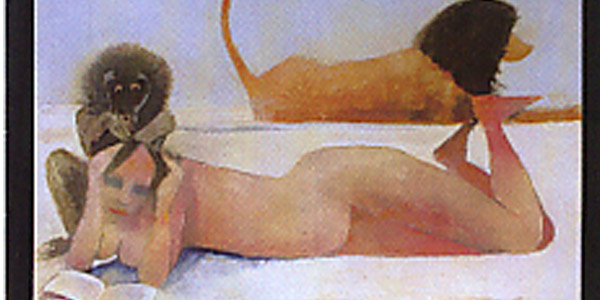When I received Matt Corby’s last single, Light Home, I had no idea who he was. I thought the song was amazing, and said as much in my review. Later, when I realised he was a former Australian Idol finalist, I thought, ‘Woops’. Literally – ‘woops’. The conclusion would have been the same, but the introduction would have been significantly more condescending, possibly defensive; ‘I know it’s hard to believe, but, despite all likely probability,’ etc.
When I received Matt Corby’s last single, Light Home, I had no idea who he was. I thought the song was amazing, and said as much in my review. Later, when I realised he was a former Australian Idol finalist, I thought, ‘Woops’. Literally – ‘woops’. The conclusion would have beenthe same, but the introduction would have been significantly more condescending, possibly defensive; ‘I know it’s hard to believe, but, despite all likely probability,’ etc.
In hindsight, I’m glad I didn’t have the opportunity to take the piss, because Matt is a legitimately talented artist who deserves to put all that Idol bullshit behind him. He was 16 years old, he was ridiculously naive and he had very long eye lashes – it’s not a crime. And if it is, this is his redemption.
Transition To Colour is Matt’s second EP, recorded in London and released through Communion, a UK indie label run by Ben Lovett (Mumford & Sons) and Kev Jones (Cherbourg). A hypnotic collection of glimmering indie folk tunes, the EP is a surprisingly mature work from the 19-year-old singer-songwriter. He wears his influences on his sleeve – Jeff Buckley, Nick Drake and Damien Rice swim ghostly through the songs – but Corby’s art is his own. Coloured Stones And Walls, the opening track, has the skipping rhythm of a Laura Marling tune but the vocal layers give it an ethereal quality. There is a brief break in the music around the half way point, and all we hear is Corby’s voice: “I’m lost and low,” he sings, “I’m lost and low.” The phrasing is just perfect.
Pianos trickle and swell throughout the record, strings hum and acoustic guitars pick their way through the songs, with the quiet skitter of drums driving everything forward. Corby’s voice is beautiful, swinging easily from warm, whispering lows to brief, wailing highs. On Winter, the carefully paced instrumentation barely changes, and there is scarcely more than one lyric in the song (“winter is coming, way too soon”); but his voice wraps around the notes, lets them breathe and expand, giving the track a mesmerising depth.
His sound won’t appeal to everyone – the soulful folk and lush production values are unselfconscious and devoid of irony, and completely outside of contemporary music trends. But Corby’s EP is brave and confident, and the music is inarguably refined.

